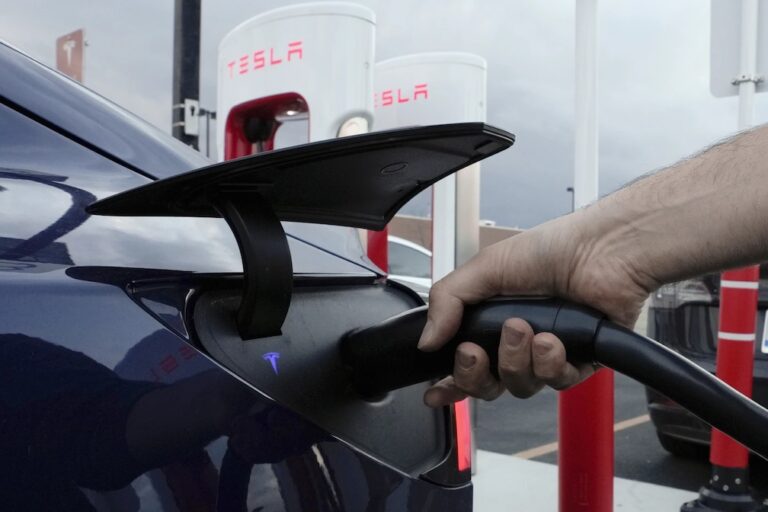DETROIT (AP) — While President Donald Trump took aim at the electric vehicle industry this week, there is still optimism about the industry’s future in Michigan, a state retooling from America’s most recognizable auto hub to its number one destination for electric vehicle investment.
More than $27 billion is being poured into some 60 EV manufacturing and battery projects in the state, edging out even Georgia, with $26.6 billion, according to Atlas Public Policy, indicating that the birthplace of the modern auto industry continues to be central to its present and future.
Michigan is home to hundreds of supply companies in addition to the automakers.
There is Factory ZERO, GM’s remade assembly plant for electric Hummers and Silverados in the diverse Detroit neighborhood of Hamtramck, on a lot rich with auto history.
There is the $1.6 billion battery manufacturing campus in Van Buren Township in southeast Michigan that’s expected to create more than 2,100 jobs and the equivalent of 200,000 EV battery packs each year once fully running.
And there is the futuristic building in Detroit’s Corktown neighborhood, next to the once-blighted Michigan Central train station Ford renovated, now home to Newlab, where entrepreneurs experiment on high-tech equipment, network with other founders and funders and collaborate with automakers.
The list goes on.
“I think that the investments aren’t ill spent,” said auto dealer Eric Frehsée, even with the president’s changes in policy. He was referring both to state electrification efforts and preparing his business, Tamaroff Auto Group in Metro Detroit, for EVs.
The Associated Press is an independent global news organization dedicated to factual reporting. Founded in 1846, AP today remains the most trusted source of fast, accurate, unbiased news in all formats and the essential provider of the technology and services vital to the news business. The Trucker Media Group is subscriber of The Associated Press has been granted the license to use this content on TheTrucker.com and The Trucker newspaper in accordance with its Content License Agreement with The Associated Press.





